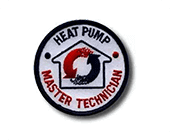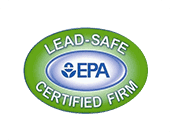Air conditioners are rapidly gaining ground as a position of prominence in our lives today. However, as with any other piece of machinery, your air conditioner may one day stop working or become dysfunctional.
Because of this, it’s important to understand the kind of common issues and problems you may come across with your AC. In most cases, you can find a short, easy fix to the most common issues. However, if you have more complex HVAC needs and outright need a replacement or repair, you’d be well off consulting a trustworthy and well-known HVAC company such as Autumn Air.
Having said that, in this article, we’ll go over the most common air conditioning problems as well as what you can do to avoid them.
7 Most Common AC Problems in Avondale, AZ
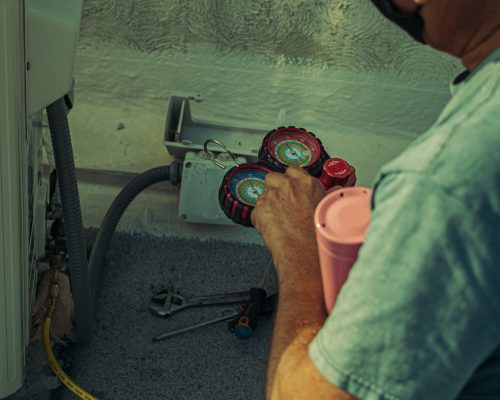
1. AC not turning on
This problem is quite common and can sometimes arise when you trip a circuit breaker. Other causes include a broken thermostat or damaged wires. HVAC specialists have advanced diagnostic tools that aid in identifying any electrical issues.
2. Uneven temperatures
The temperature should be consistent throughout your home if you have a single thermostat and an installed HVAC system. If you turn on the air conditioner and find that only half of your home is comfortable, your AC is broken.
It’s likely that some of your rooms are not properly sealed. If that’s the case, adding insulation to your home will help. If that doesn’t work, your air conditioner is probably broken.
3. Thermostat malfunction
Your thermostat could be faulty if the air conditioner runs constantly and short cycles, if the room feels warmer than the setting you set it at, or if the cooling system breaks down suddenly.
4. Refrigerant leak
The fluid that flows through the coils of the AC, that’s responsible for moving heat from inside the home into the outside environment through the condenser unit, is known as refrigerant. In the case of a refrigerant leak, there’s a good chance that your unit won’t be able to properly move heat out of your home. It should still be operational, but it will not maintain the required temperature.
5. Blowing hot air
There are several possible reasons for why there’s hot air coming out of your AC. Here are some of the most common:
Dirty evaporator coils: The air that is expelled from your air conditioner will be hot if the evaporator coils are dirty. This is because a dirty evaporator coil can reduce the system’s ability to eliminate heat from a space.
Congested Condenser: The condenser is located in the outer part of the air conditioner, where it can become jammed over time by dust, debris, and other material. If the condenser becomes choked, it will be unable to dispel heat.
Obstructed air filters: Air filters that are obstructed reduce how much air can transfer through the evaporator coils. When this occurs, the amount of heated air sucked in by the air conditioner in your home is not cooled.
Failure of the compressor: The compressor is a crucial component of your cooling system because it keeps the right amount of pressure in the refrigerant. Without it, it’d be extremely difficult for your HVAC system to properly gather and transfer heat from the interior spaces of your house to the outside. If the AC starts to malfunction, it won’t be able to provide the desired level of cooling within the home.
6. Foul smell
If there are electrical smells coming from the motor, the wiring may need to be fixed. If your air filters are blocked, your system may overheat, resulting in burning smells. Fungal odors are caused by drainage problems. Turn off the air conditioning as soon as you notice a burning odor. Check the air filters. If they appear worn, replace them.
Schedule routine cleaning of the ducting and air conditioner to prevent an unpleasant odor from developing in your home. Regular system maintenance can also help to eliminate musty odors.
7. Loud noises
Any pounding, scraping, screeching, or rattling coming from your appliance is cause for concern. These loud noises stop when the underlying issue is resolved. The technician spends time inspecting belts and lubricating bearings as part of the routine maintenance procedure to safeguard the compressor motor. The issue should be identified before it worsens.
How to keep your AC running in a good condition?
The correct size of the AC according to your room
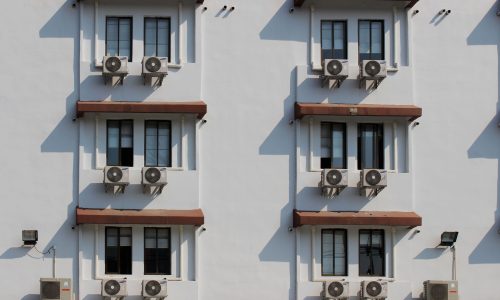
When it comes to purchasing an AC unit, many homeowners believe that a system with a bigger capacity is better than a smaller one. But there is a chance that short cycling will happen if the AC is too big for the room.
Filter maintenance
You can reduce the impact of pollutants that are in the air, alleviate allergy complications, enhance air quality, and keep your air conditioner from overworking if you regularly clean and replace the filters in your air conditioner.
Set up a smart thermostat
Using a smart thermostat, you can direct the AC to maintain a temperature that is just right for the space you’re cooling. As a direct consequence of this, the AC won’t have to work on itself to the same degree in order to provide cool air.
Cleaning the condenser
Cleaning the air conditioning condenser at least once each year ensures that it will continue to function properly and operate at its full potential. You should be able to clear the condenser of any dust or debris that may have accumulated over time.
Rooms should be insulated
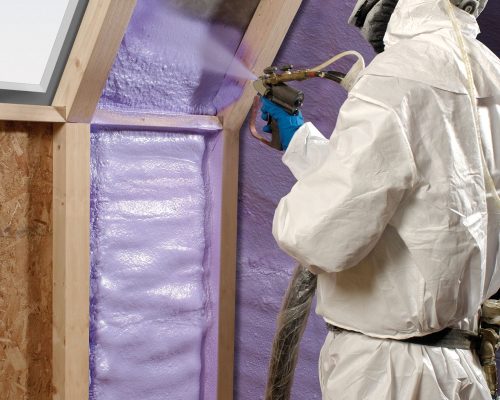
Because heat travels from hotter to colder regions in a natural progression, having enough insulation in a building stops air from leaking out through the ceilings, floors, and walls. The AC will operate more effectively if you make such indirect modifications to the energy it uses.
Remember to switch off
When you are not at home or just not using the AC, be sure to keep it powered off. Keeping the AC on all day will reduce its operational lifespan significantly and will increase the chances of issues and problems as the years go by.
How long do air conditioners last?
The amount of time that an AC will remain functional can vary greatly depending on a number of factors. Your preferences regarding temperature and level of comfort, as well as the maintenance that is performed on the system, are all potential factors that might either lengthen or shorten the lifespan of your system.
When a complex issue comes up, you may need to decide whether to fix the AC or buy a new one. If you opt to fix the unit, you may be able to extend its life through the replacement of a key component, but you may cut its lifespan in half if you decide to buy a brand-new system.
Even though every model is distinct and everybody has a different idea of when the AC in their home needs to be repaired, it is reasonable to assume that a new and efficient cooling system can be expected to last anywhere from 15 to 18 years with regular maintenance and care.
Takeaway
Keeping your HVAC system in good working order necessitates proper attention and adequate maintenance. The common AC problems discussed in this article can assist you in identifying and resolving issues more quickly.
But in case of severe issues or a problem that’s too much for your to handle on your own, it’s best to get in touch with the experienced and established HVAC professionals at Autumn Air. We make sure that no matter what your issue, we can address it and get it resolved in the quickest and most effective way possible.






